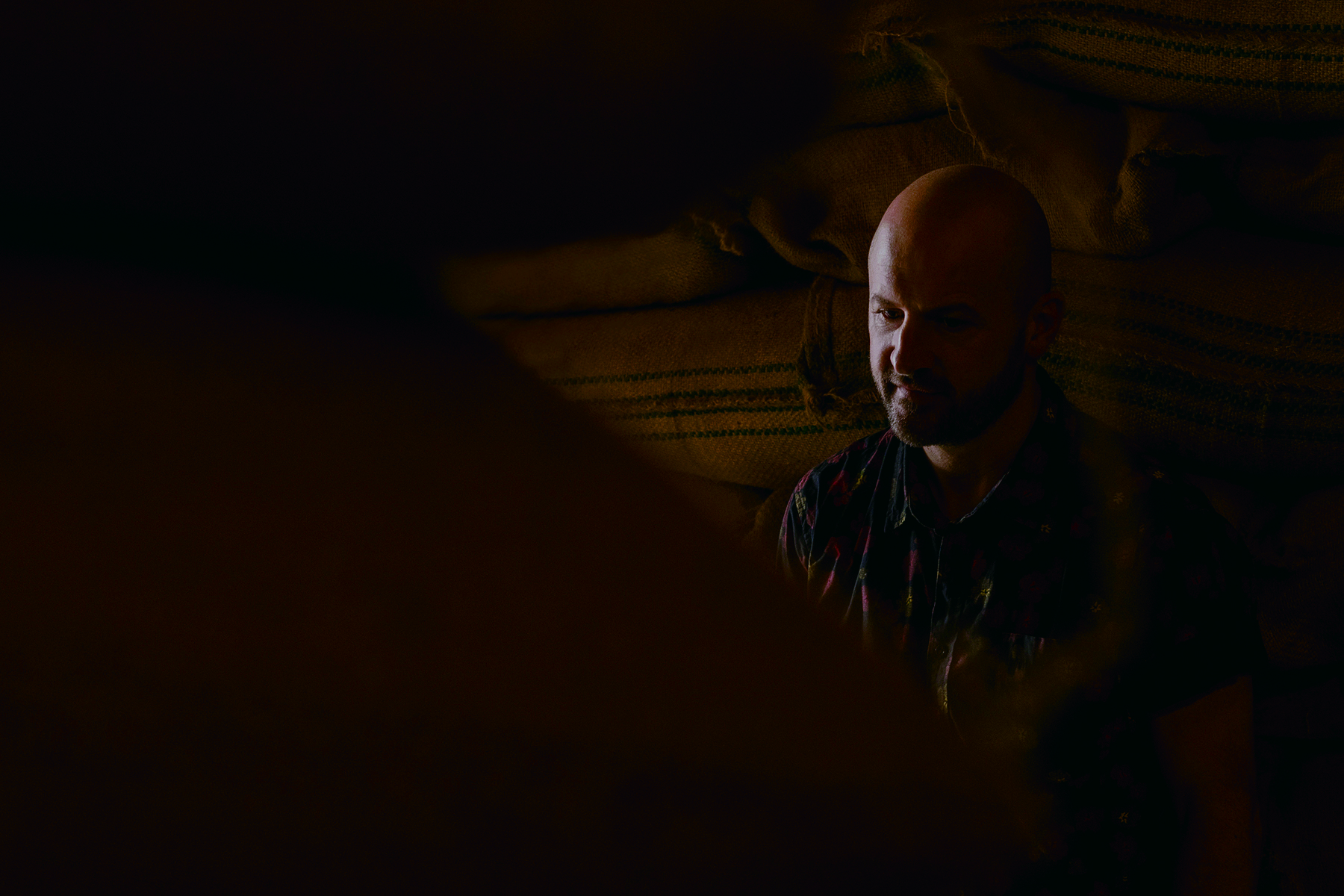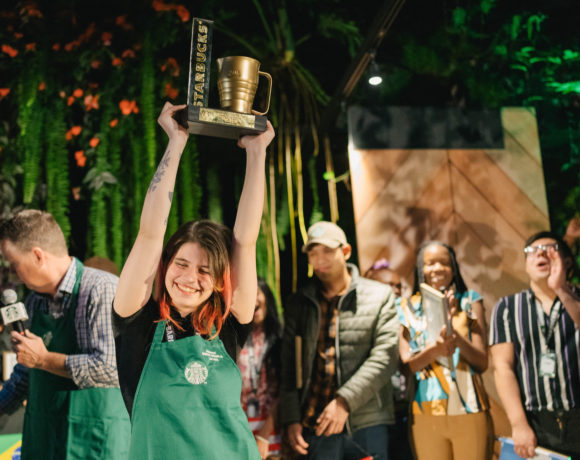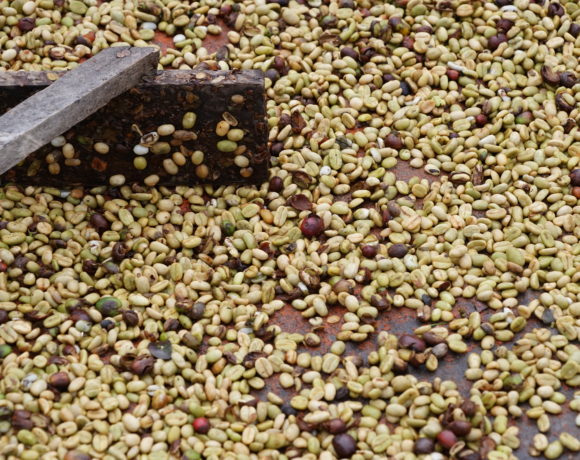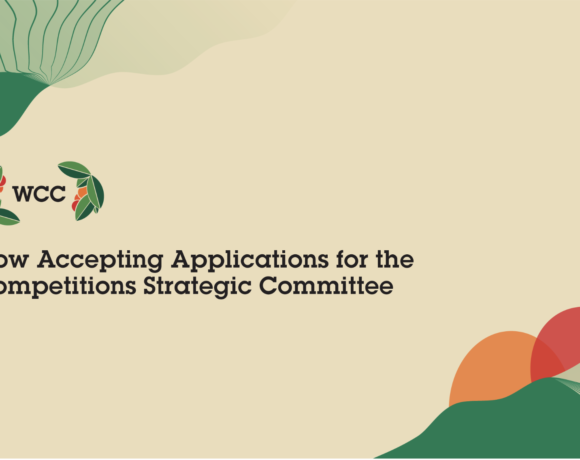Coffee is a young industry and has always attracted young enthusiastic new baristas. So many people have worked as a barista at least during school or as part-timers. We all know someone who was or is a barista at your local coffee shop, or maybe you even made friends with some barista, the timing and logic is not important really. What is important that there are so many baristas these days!
Back in the day…
Nevertheless, even famous coffee professionals did not think of coffee when asked about their childhood dream job. “I always wanted to do something important for my community, when I was young, I wanted to become a doctor but, looking at what I’m doing nowadays, I can say that – in my own small way – I can make other’s people days better with a good coffee, and so I somehow achieved what I wanted to be when I was a kid,” says Francesco Sanapo, 2010 Italian Barista Champion and Ditta Artigianale founder. And another coffee pioneer, Jeremy Zhang recalls his childhood aspiration: “Apart from some superheroes in the cartoon, I didn’t think too much about that. I was not really confident to have some wild dreams at that time.”
They both know what it is like to be baristas, in different parts of the world: Jeremy in Australia and Francesco in Italy. Even though those are completely different parts of the globe, little by little specialty coffee has started conquering the world. As it was only beginning of coffee obsession we see today, working as a barista in the early 2000’ was totally different: there was less care and professionalism, the role of the barista was a mix of field experience and quick service, there were no study courses that could help barista get more knowledge. Luckily, now the situation has changed and thanks to the world wide web and the growth of the industry, we can learn so much about coffee from any place in the world.

Fresh start
For many baristas starting today, the first step into the coffee world is through the door of chain coffee shops. Working in the industry for the first time can be daunting; you have to do everything from blending up iced drinks to managing a large line of “to go” cups in a multitude of sizes, all while delivering exceptional service. Many will scoff at a young barista trying to work their way into this work environment.
Making a cup of coffee is all about the customer experience. After all, the effort a barista puts into their job is so that the customer can have a great cup of coffee. Many customers go into coffee shops simply for the experience and customer service. After all, these are things that help set their shop apart from other competitors. Baristas are friendly and partake in small conversations with customers which can bring a smile to their day.
Anyone can make a cup of coffee but it takes a special someone to create a truly good cup of coffee. Firstly, a barista understands how the grind size of coffee beans will affect the overall flavor. For example, they understand that if a coffee is found to be too bitter one solution is to use a coarser ground to slow down extraction and speed up the brew time. A second technical aptitude they will learn to master is how to froth milk and how to simply put it. Learning how to make a good cup of coffee takes a lot of time to learn. However, the end result is worth it!
Nevertheless, today being a barista requires completely different skills from what it used to. Thanks to the growth of the coffee market and integration of coffee supply chain, on one hand, baristas need to learn more about different type coffee, find the relationship between flavors and climate or processing, they are more like sommeliers in wine industry. On the other hand, barista becomes one of the important parts of coffee professionals’ group. Young baristas can strive to become a roaster, a green coffee buyer, a trainer and etc. The career ladder has grown.

Francesco Sanapo
Being a barista requires a range of skills however there are a few which are more essential than others. These skills include:
Meticulousness
Meticulousness is a term used to describe when someone pays attention to detail and takes care in all the smallest details. This is an important soft skill when brewing a cup of coffee. Specialty coffee shops want baristas who are meticulousness because it helps to ensure that quality coffee is made. Following well-established standards is a sign of meticulousness and someone who can make a good cup of coffee.
Consistency
When a customer orders a drink at their favorite coffee shops, they expect that every time they go it will taste the same. Consistency is a sign that the barista is meticulous and pays the same amount of attention to each coffee order. Consistency can be seen in how they keep their stations clean and how they brew each cup of coffee.
Speed and efficiency
If you plan to work in a coffee shop then you need to be a person who is light on their feet. When customers order coffee, they do not expect to wait very long for their orders so a barista has to act fast. In order to work fast, they will multi-task and know how to make standard drinks well in advance. They also use their ability to work consistently to ensure that they get the actual drink order correct.
But to reach the peak of the ladder, one should be very assertive: this job is easy to start, but deep to learn. “As long as you are passionate with coffee and people, you are really fit this job”, shared Jeremy. Francesco, on the other hand, feels like being a barista involves so many interpersonal skills that sometimes it might feel overbearing: “After some years it becomes harder and harder to wake up every day with a smile on your face to go and make other’s people coffee: this is just the right moment to take a break or to look for other possibilities in the field of hospitality or in the coffee industry.”
Hardships of being a barista
Except for being emotionally hard, the job amplifies a standard barista salary, which is more or less same around the world: on average full-time barista will earn about 4000 RMB per month (around 600 USD). In top tier city like Shanghai, it reaches around 5500 yuan give higher living expenses, some top baristas can earn up to 15000 RMB which is in the upper-middle-class range. However, in developing cities, some baristas only earn as little as 3000 RMB. In Italy, baristas can earn the minimum wage of 1200 EUR which can increase up to 2000 EUR depending on the skills, but hardly any more due to the heavy taxation laws.
And so, the only solution to escape a lack of possibilities is to change job/shop which allows the barista to find new stimuli and see new faces and meet new people, to take a break from the daily routine. Answering the question if there is a solution between what baristas ask and what most of the businesses can offer them, Jeremy and Francesco see it differently. Jeremy Zhang feels like mutual understanding of expectations of both parties is the key, as those expectations should also include the long-term goals and transparency. Francesco sees a bigger problem in the level of salaries and suggests to raise the price of coffee, especially in some areas in Europe. “Sadly, if nothing changes, the barista won’t make more money, since the owner can’t give more money given the low profit of the entire business,” concludes Francesco.

Jeremy Zhang
Endangered species
Compared to the rest of the world, China started to recover the business since March 2020. Most of businesses were already back to normal by May. Still, some of them could not survive the crisis. “Honestly, we couldn’t do much with coffee business, but it was actually a good time to rethink our own career path. If being a coffee professional is really what we want, and how should we empower ourselves with knowledge, it is a great time to learn,” says Jeremy.
With everything happening in the world right now, digitalization took a new turn and became even faster than ever before. The lockdown showed us how fragile can be HoReCa as a business and how uncertain can be the future for baristas. Is the barista an endangered species? It’s a discussion that comes at a time where many industries have been ‘disrupted’ by technology – Uber, Airbnb & Amazon come to mind – is the same thing about to happen to the local barista? The technology certainly has come a long way. More and more we see equipment that is capable of things that were laughable only a few years ago: there are fully automated coffee machines that are capable of producing a beautifully balanced espresso. It precisely doses and grinds the beans. It pre-compresses the coffee into a barista-tight puck. It extracts the coffee and measures the extraction parameters against a predetermined recipe. If an error is found, it starts over again by changing the grind size, just like a barista would. The result is delicious, and it gets one thinking: will we see a day when the skill of a barista will be superseded by the repetitive accuracy of machines?

We believe the answer is No. While a machine may replace the repetitive, manual tasks – the most vital part of a barista’s job is not something that can be replaced: machines do not feel the joy when making coffee, people do: interacting with humans cannot be replaced. New technologies will still require people and the correct balance between these two aspects will better the working conditions of a professional barista. As it is happening in many industries already, Francesco predicts there will be a huge and deep gap between the educated operators and the uneducated ones, a separation that will be underlined by working conditions and consequent wage, coffee shops will adapt to different service systems but will always require a barista capable in terms of hospitality, management and review of the raw materials and of finished product. As it seems right now, baristas’ future is in the hands of the baristas themselves, and it won’t require only the skills to prepare an espresso or a cappuccino but much more knowledge of coffee, service, business and how to be a great conversationalist.
Being a young barista has always come with many struggles. Many generations before current baristas enjoyed different kinds of coffee and developed the industry in their own way facing the hardships of the time. Despite the challenges young baristas face now, they will too bring something new to the industry, like it was done by their predecessors: Generation X introduced popularized espresso, millennials brought the third wave and the new industry standard for quality and sustainability and young baristas to come will most likely change the industry by adapting it to the digitalization. They will be the next generation of barista champions and the face of sustainability. What we must do as coffee professionals is encourage this generation and be open minded. The future of coffee is in the hands of young baristas.












NO COMMENT